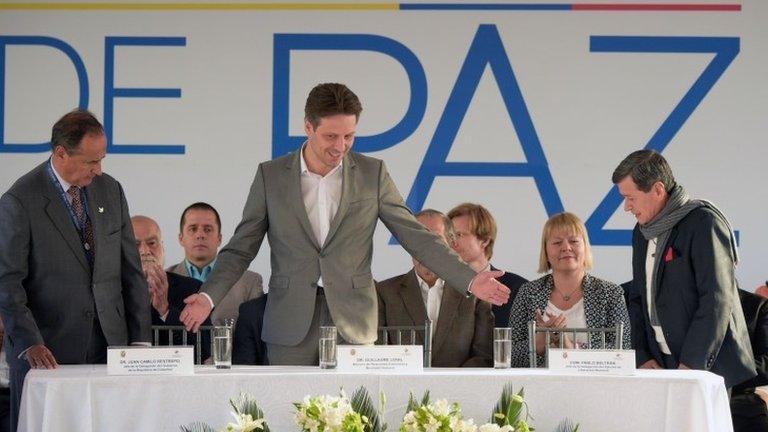Ecuador poll: Governing party's Lenin Moreno leads vote
- Published
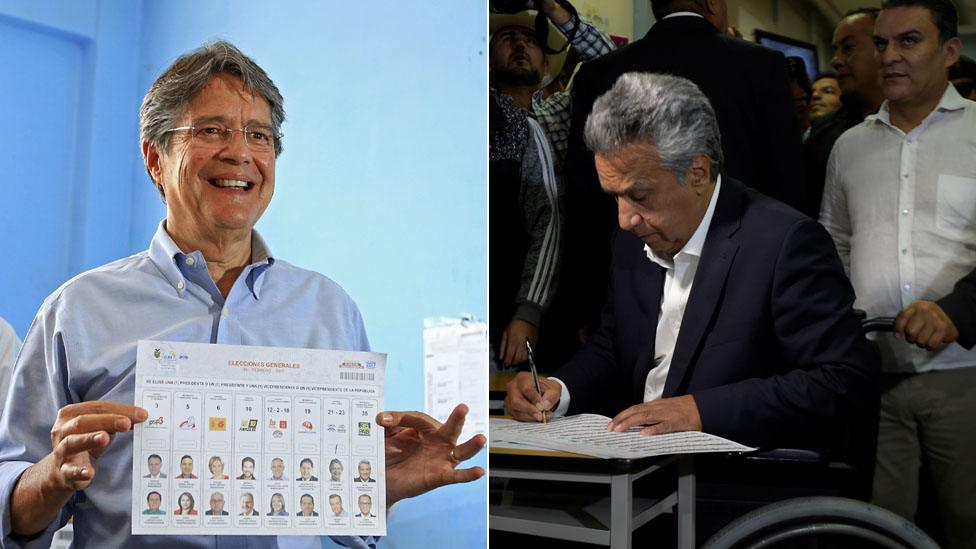
Guillermo Lasso (L) and Lenin Moreno (R) casting their votes on Sunday
Partial official results in Ecuador's presidential election have put governing party candidate Lenin Moreno in the lead.
With 88% of the votes counted, he has 39.1%, just short of the 40% needed to win outright in the first round.
If he fails to reach 40%, he will face conservative candidate Guillermo Lasso in a run-off on 2 April.
Third-placed candidate Cynthia Viteri said she would support Mr Lasso in the case of a second round.
Polls conducted before the election suggested that Mr Lasso could win a second round if he got the backing of candidates eliminated in round one.
Mr Moreno needs to both win 40% of the vote and have a 10-percentage-point lead over the next candidate to stave off a second round. He currently has a 10.8-percentage-point lead but not the 40%.
Final results could take up to three days to be announced.
Why does it matter?
After 10 years in power and three election wins, incumbent left-wing President Correa was not running again, so change at the top was inevitable.
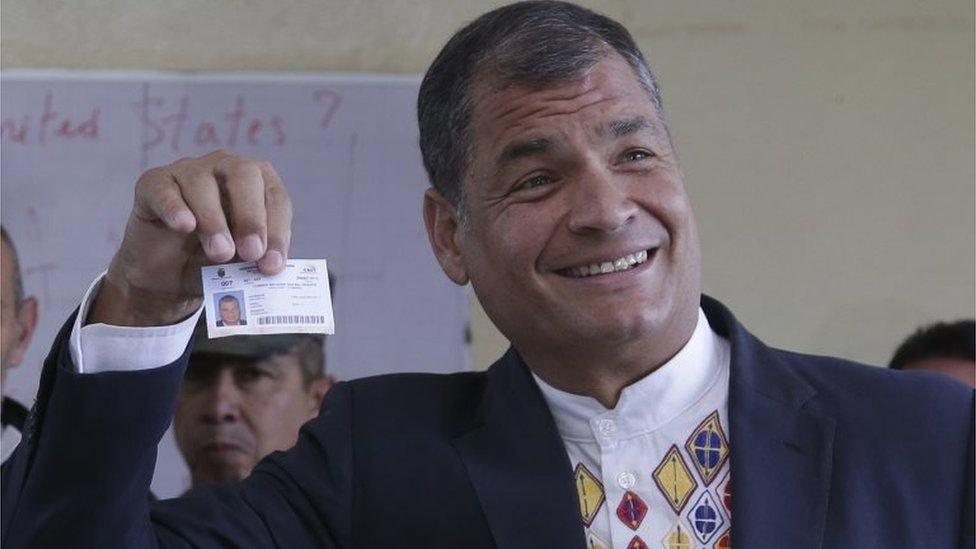
Rafael Correa cast his vote on Sunday but was not in the running
But a defeat for Mr Moreno, who has the backing of Mr Correa and his party, would signal a swing to the right after a decade of left-wing policies and could have implications not just for Ecuador but the region.
When Mr Correa was first elected in 2007, he was one of a group of left-wing leaders in power in Latin America, including Argentina's Nestor Kirchner, Bolivia's Evo Morales, Brazil's Luiz Inacio Lula da Silva, Cuba's Raul Castro, Nicaragua's Daniel Ortega and Venezuela's Hugo Chavez.
Some observers spoke of a "pink tide" sweeping across the continent.
A decade on, Argentina and Brazil are led by conservative presidents, Venezuelan President Nicolas Maduro faces a hostile legislative and Evo Morales is on his last term after Bolivians rejected a proposal to change the constitution to allow him to run again.
All eyes are now on Ecuador to see which way it turns.
Who is the man in the lead?
Lenin Moreno, 63, served as Mr Correa's vice-president from 2007 to 2013 and has been one of his close allies although he has recently sought to distance himself slightly from the outgoing leader.
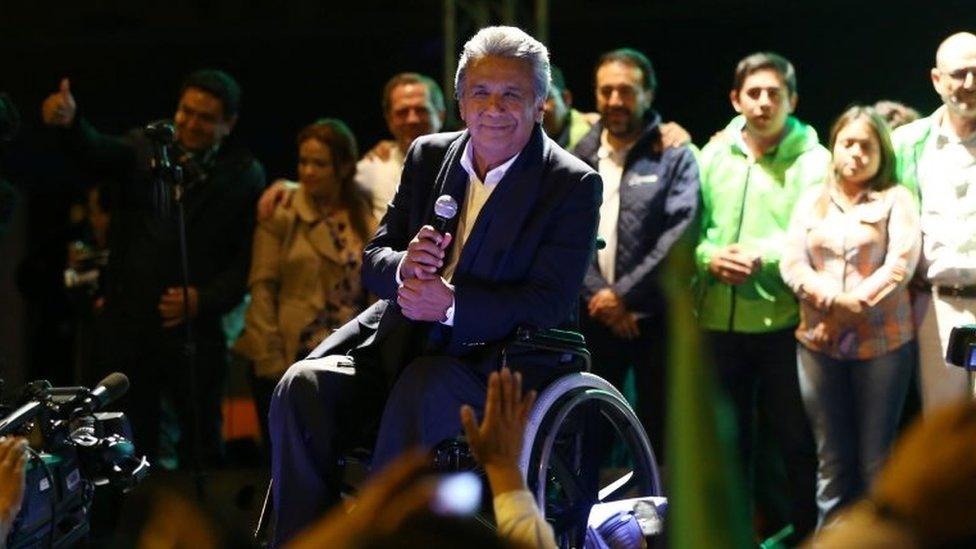
Lenin Moreno has declared himself the winner without waiting for the official results.
Observers say his style is less confrontational than that of Mr Correa and they suspect Mr Moreno may try to jettison some aspects of his predecessor's socialist policies.
As vice-president, Mr Moreno, who became paraplegic after being shot in the back in 1998, set out to improve the rights of people with disabilities.
Not only did he give motivational talks, he also published books on humour and happiness with titles proclaiming: "Being Happy is Easy and Fun".
Most recently, he served as UN Special Envoy on Disability and Accessibility.
Among his main campaign promises are increasing employment opportunities and ensuring that all Ecuadoreans have the chance to go on to higher education.
Who could beat him to the top job?
His main rival is centre-right businessman and former presidential candidate Guillermo Lasso.
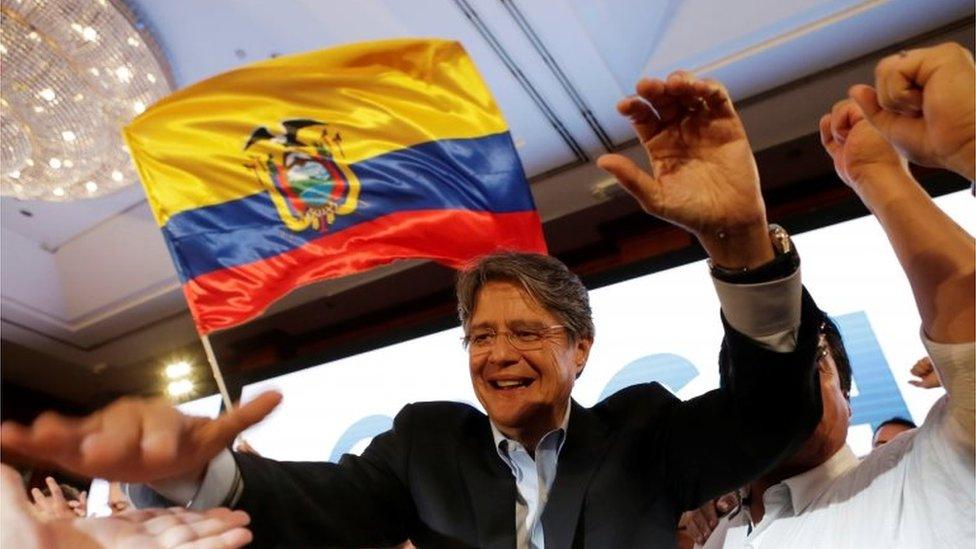
Guillermo Lasso and his supporters think a run-off is inevitable
The 61-year-old is running for the Creando Oportunidades (Creating Opportunities) party.
A banker, Mr Lasso wants to create a million jobs by promoting foreign investment and has promised to cut taxes for big companies.
He also has plans to make Ecuador's central bank independent of the government.
The youngest of 11 children, he says he wants to "create an Ecuador with opportunities for all".
Why is Julian Assange following the election?
The WikiLeaks founder has tweeted a link to a live page on the results and has himself posted updates on the count.
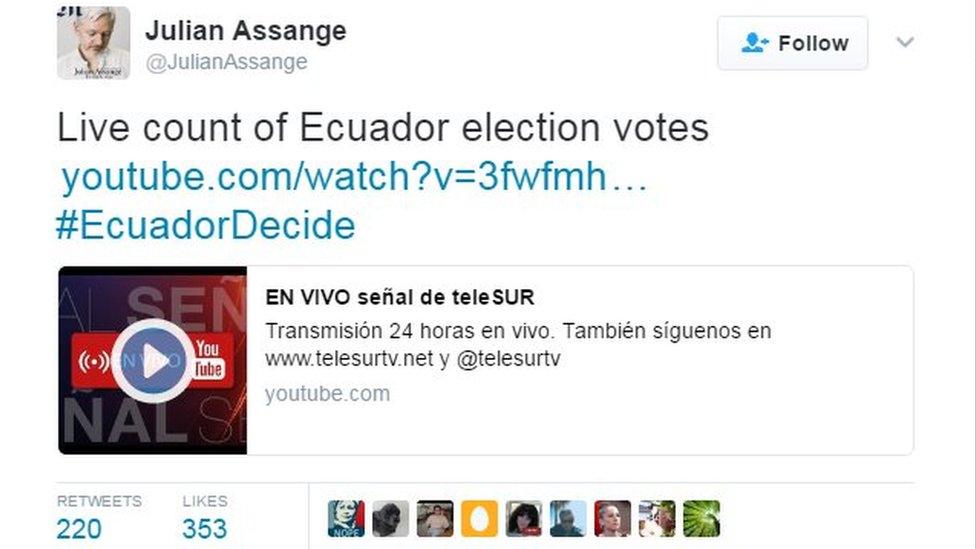
Mr Assange has been living inside the Ecuadorean embassy in London for more than four years for fear of extradition to the United States after he published leaked documents.
But if Mr Lasso were to win the election, Mr Assange's time at the embassy could come to an end very soon as Mr Lasso has pledged to evict him within 30 days of taking office.
Mr Moreno has indicated he will allow let Mr Assange stay.
What awaits the winner?
The eventual winner of the election will be sworn in to a four-year term in May.
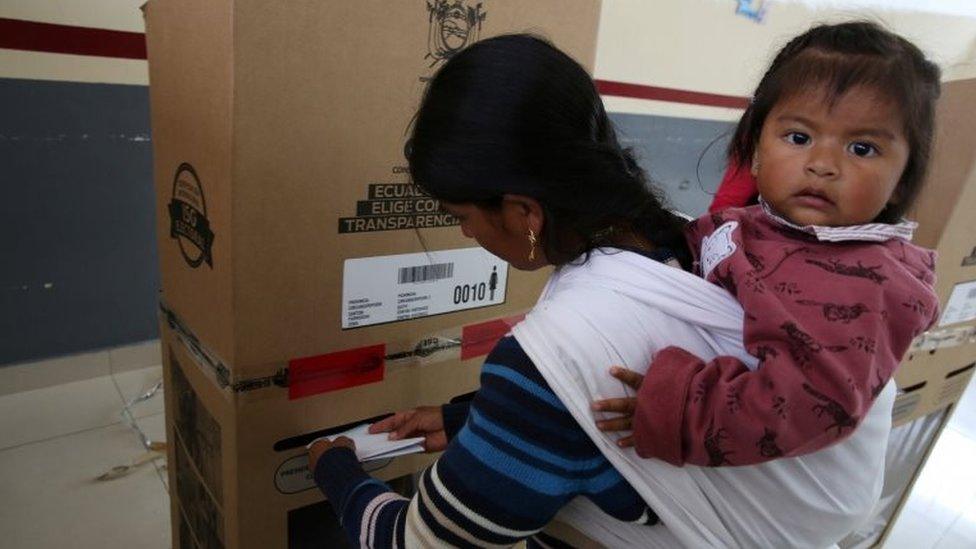
Education has been one of the key subjects of the campaigns
Economic recovery is likely to be a top priority. The oil-exporting country has suffered from a drop in international oil prices and has seen its GDP contract 1.7% in 2016.
Corruption is another major problem with officials from Brazilian construction giant Odebrecht recently revealing that they paid close to $35.5m in bribes to Ecuadorean officials in exchange for contracts.
In foreign policy, the new president will have to deal with US President Donald Trump and his potentially more protectionist economic policies.
- Published21 January 2017
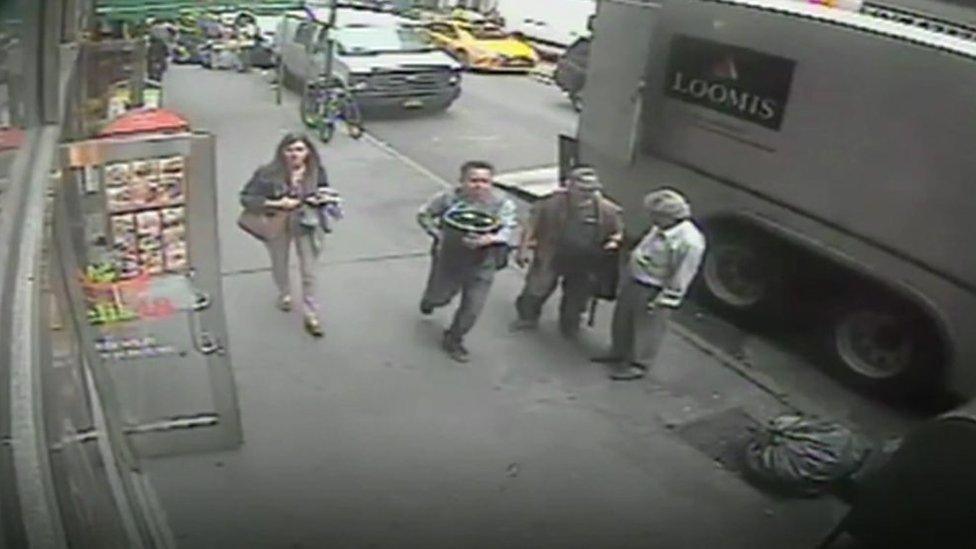
- Published16 February 2017
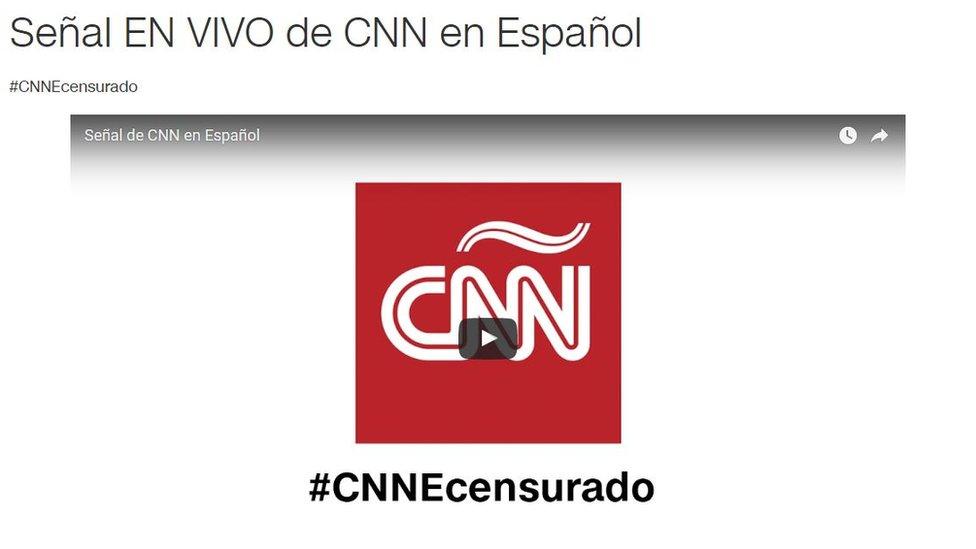
- Published15 February 2017
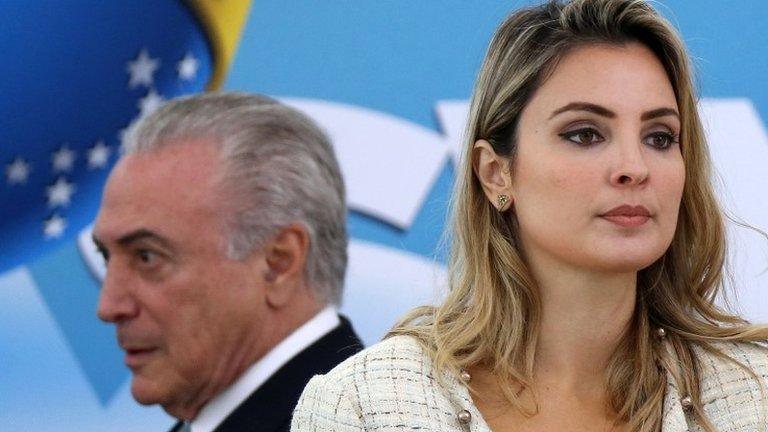
- Published8 February 2017
